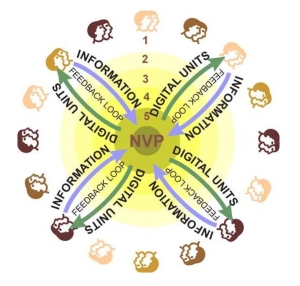
The open software movement is a reaction to the corporate dominance over participation and exclusion.
Corporations today are deciding who is allowed to participate in building the future and who is not. The process of choosing who is included and who is excluded is far from a perfect. Once a choice is made, though it was made in one context, it remains in force for the duration of employment in whatever context may arise.

 Phi Beta Iota: It's probably a great honor to be slammed by the staff of The Daily Bell, but it would be even more constructive if they got in touch. Steele's comments are inserted.
Phi Beta Iota: It's probably a great honor to be slammed by the staff of The Daily Bell, but it would be even more constructive if they got in touch. Steele's comments are inserted.



